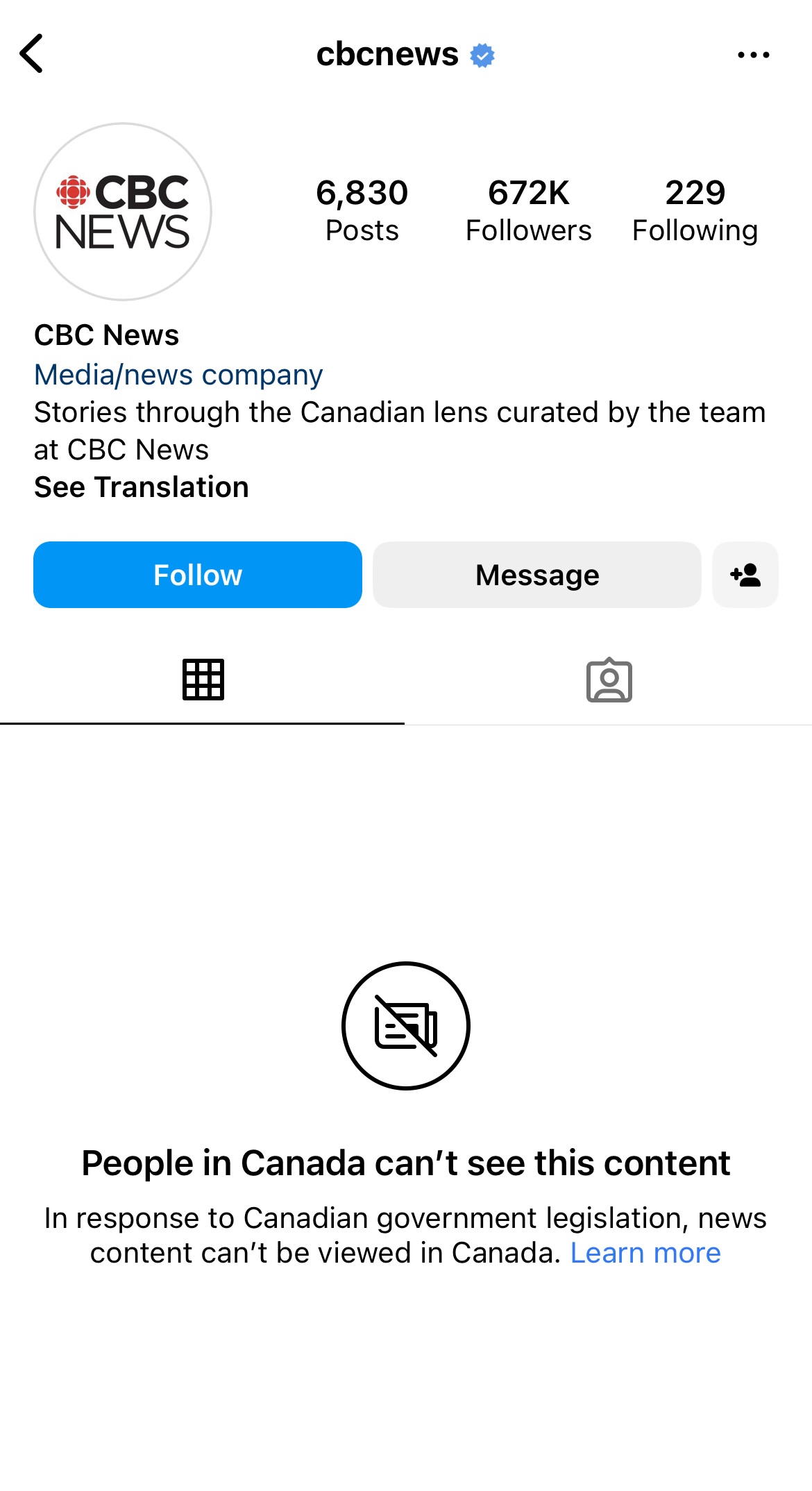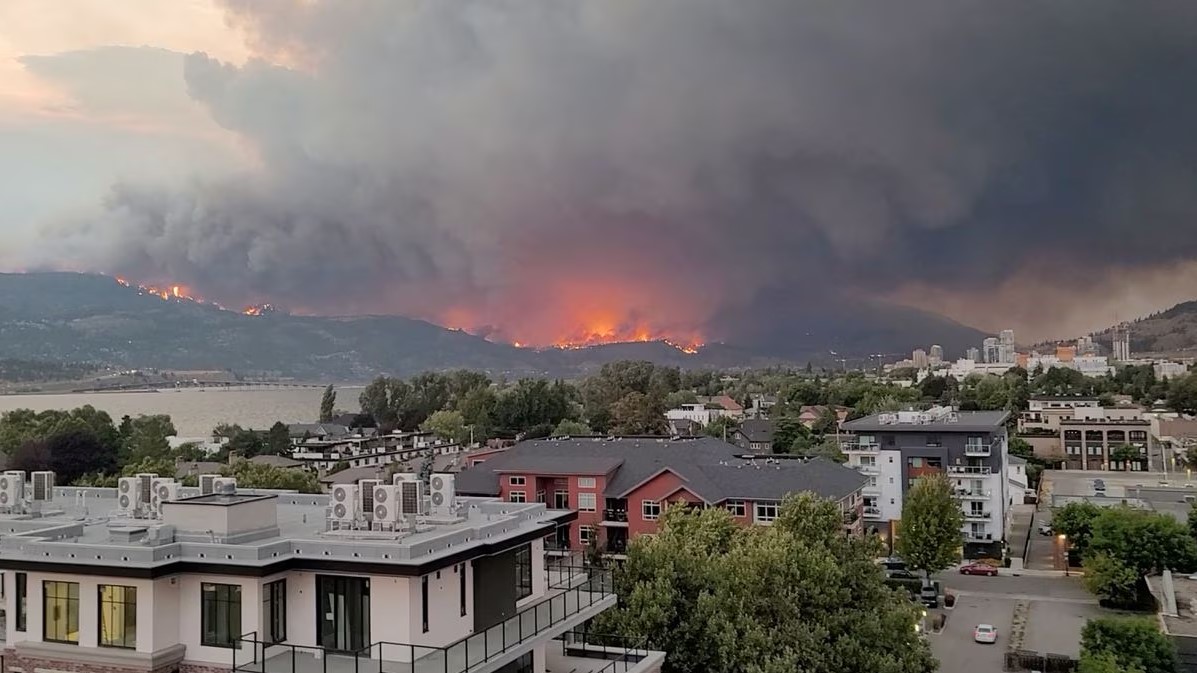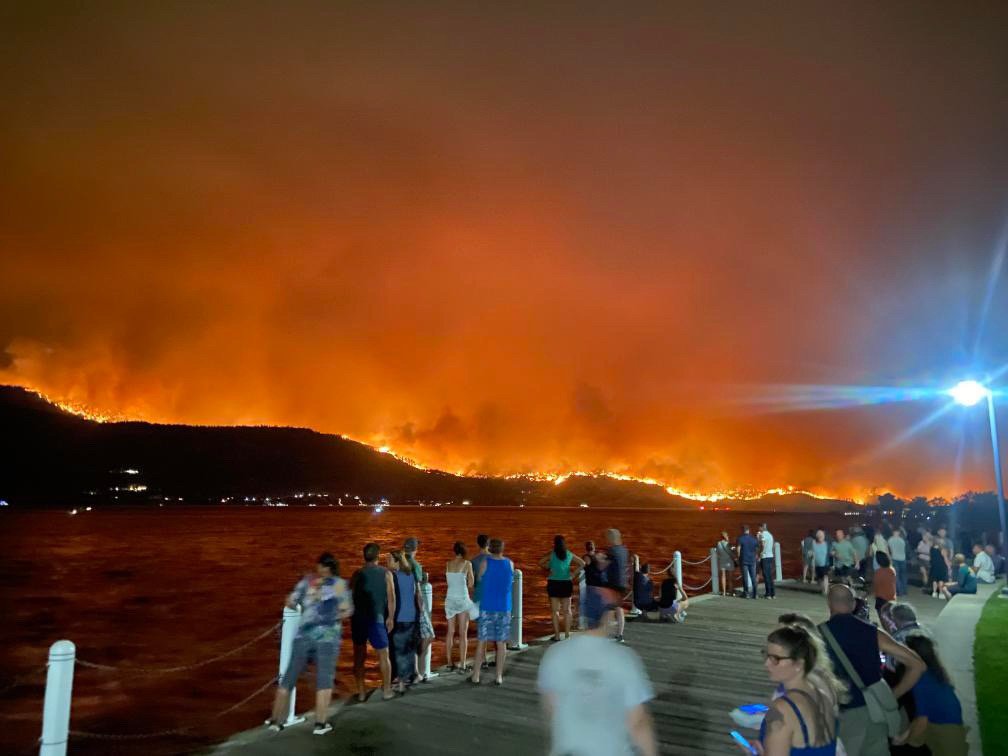The Problem
If you live in Canada, you may have seen a notification on Facebook or Instagram stating that, in response to the “Online News Act”, that you would no longer be able to access news accounts or content from their platform. The “Online News Act” covers many things; however, the primary thing that Meta, as well as Google, have had their gripes with is the portion of the act that would require media giants to create fair deals for Canadian news providers and pay them for the content that they provide.

Something else you may have noticed if you live in Canada, the US, or even portions of Europe is the smoke from Canadian wildfires. While wildfires happen typically every year in Canada and the US, this year has been by far the worst in recent memory, with significant portions of the country suffering from fires for several months now, since around when spring began.
These two issues combined are directing anger towards Meta, which is maintaining their news blockage during widespread evacuations across the nation, something citizenry and the government say can be dangerous for people seeking information on whether or not they may need to abandon their homes.
The Wildfires
As mentioned, significant portions of the country have been on fire for several months, beginning in March and worsening significantly in June. Warm weather struck in many places before leaves came in, with temperatures reaching above 20 degrees Celsius and even hitting 30 degrees in some areas (70–90 F). Warm weather, no natural leaf coverage (which provides shade), and little rain mixed with Alberta and Western Canada’s already typically dry conditions caused rampant fires. While many have been put out in the months between April and now, others have started, and even still portions of the nation are on fire.
In each province that they hit, evacuations had to take place. Across the country, videos and pictures of the destruction emerged, and in cities across Canada and the US a blanket of smoke covered the sky, in some cases so much it blotted out the sun.
Thus far, as of August 26th, nearly 6,000 separate fires have burned 148,679 km2 (57405 mi2) of land, accounting for around 4% of Canada’s total forest area. While only 6 people have died in the 2023 wildfire season, as of July, 155,856 people had been evacuated. This number has grown as fires raging in the Okanagan Valley and the Fraser Valley (including the Greater Vancouver Area) in British Columbia (BC) and in the North West Territories (NWT) have prompted further evacuations. In Yellowknife alone, all of its 20,000 people have recently received evacuation orders, joined by thousands of others in smaller towns in the NWT.

By area, the 2023 Canadian wildfires have seen the most area burnt in recorded North American history.
Presently, approximately 1039 wildfires are burning across the country, 675 of which have been declared as being “out of control”. Fires are concentrated in Alberta, BC, the NWT, and Saskatchewan.
The “Online News Act”
The primary purpose of the Online News Act is to enforce that tech companies work out a deal with Canadian media companies and fairly compensate them if they wish to host their news content on their platforms. The legislation is based upon a similar Australian legislation named the News Media and Digital Platforms Mandatory Bargaining Code. In total, the compensation that would have to be fielded by companies like Google and Meta to the Canadian news companies would be around 330 million CAD per year (250 million USD).
Largely, the basis of the argument for the bill says that Meta and Google, who combined receive approximately 80% of all digital advertising revenue within Canada, are benefiting disproportionately from the traffic that Canadian news companies generate. As these Canadian companies post on these platforms, the extra content means more ads they are able to show.
However, the tech giants have expressed their unwillingness to adhere to this legislation. Meta says the notion that they benefit disproportionately from the traffic Canadian companies generate is untrue.
“For many months, we have been transparent about our concerns with the Online News Act. It is based on the incorrect premise that Meta benefits unfairly from news content shared on our platforms, when the reverse is actually true”, Meta Canada Public Policy head Rachel Curran.
Meta in their full statement suggested that the news companies hosted on its platforms benefit from attracting readers to their personal platforms (website’s, apps, etc), which overshadows any sort of ad revenue Meta may make from their content.
Google has took to calling the legislation a “link tax”, adding that it “breaks the way the web and search engines have worked for more than 30 years.”
Meta and Google’s responses have been to block news content for Canadian viewers. While Google will only be restricting Canadian content from its search function, Meta has taken to blocking Canadian and foreign news content from its Facebook and Instagram platforms. Whether you search on Instagram for CBC or Al-Jazeera, you cannot access them. Meta’s ban went into effect on August 1st, whereas Google’s has only begun to affect some users as they gradually phase it in. They have not stated when it will take full effect.
In regards to Google, Canadian outlets will, when the blockage is in effect, no longer show up on basic searches. Should Canadians desire to see content from, for example, CTV, they will need to head directly to their website.
The tech company’s response is to attempt to force the Canadian government to stand down on the legislation. The blockage has sparked a significant outcry from Canadian media companies, particularly from Bell Media, a Canadian media giant that has completely withdrawn from all of its advertising with Meta.
The news blockage affects both large and small/local media outlets.
The full text for Meta’s blockage notification received by Canadian instagram/facebook accounts may be read below:
Canada’s Online News Act
In response to the Online News Act, content from global news outlets, including news publishers and broadcasters, will not be available to people accessing Facebook and Instagram in Canada.
People in Canada will no longer view or share news on Facebook and Instagram, including news content posted by news outlets. In addition, people in Canada will no longer see links or content from any news outlet Pages or Accounts.
News outlet Pages/Accounts located in Canada will no longer see the content from their Page/Account. If they wish to view or edit their content, they can log into Meta Business Suite. News outlet Pages/Accounts, both inside and outside of Canada, will still be able to post news links and content; however, content will not be viewable in Canada. News outlet Pages/Accounts will continue to have access to advertising tools.
Meta’s review team identifies news outlets based on legislative definitions. News outlets include undertakings whose primary purpose is to produce news content, in any format (including an audio or audiovisual format), that reports on, investigates or explains current issues or events of public interest.
The News Blockage and the Fires
As social media evolves, more and more people are getting their news on social media platforms rather than from traditional sources. It provides the capacity to give rapid updates on things going on, which, as fires force evacuations, can factor into the safety of civilian populations. Given that local media outlets, who would be providing such updates for the people within their areas of operation, are facing blockages, the citizenry and the government have angrily raised the issue with Meta. They state that the blockage is making it difficult to verify information, if they can even access any at all.

Many have called for Meta to temporarily lift the ban until after fires are no longer a threat, but Meta has not budged, instead attempting to redirect them to the “Safety Check” function on Facebook to see whether or not there are threats to their safety.
“It’s inconceivable that a company like Facebook is choosing to put corporate profits ahead of safety and keeping Canadians informed about things like wildfires” – Canadian Prime Minister Justin Trudeau
The Online News Act has yet to go into effect as the government works to establish some framework for the act after it passed through Parliament in June. Because of this, if Meta were to temporarily lift the blockage as things currently stand, they would not have to offer any additional compensation.
As it presently stands, Google, Meta, and the government all appear to be standing strong in their positions, and the future of the bill and information access on two of Canada’s largest platforms remains unclear.


